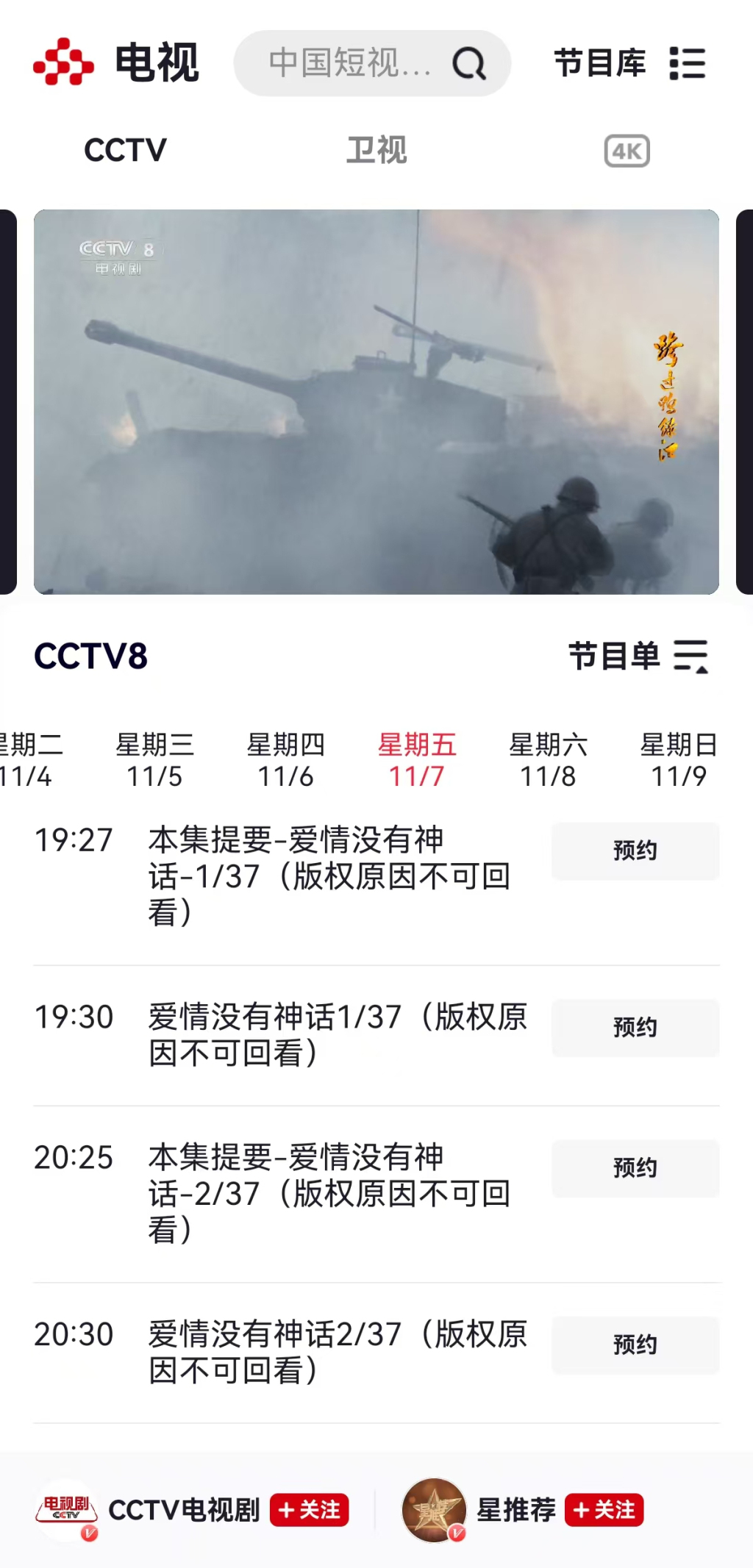
Pale Fire, which aired on Youku, is an outlier among recent domestic dramas. "A young man from a small town falls in love with a mature woman with a tragic and mysterious life story, and the two experience crime and secrets together." The story itself is unique, and the overall style composed of its photography, costumes, editing, music and other aspects presents an amazing poetic aesthetic. As the general producer of the drama, Zhang Shuwei accepted an exclusive interview with The Paper and recalled the creation and production process of this work. She said frankly, "This is an experimental work."
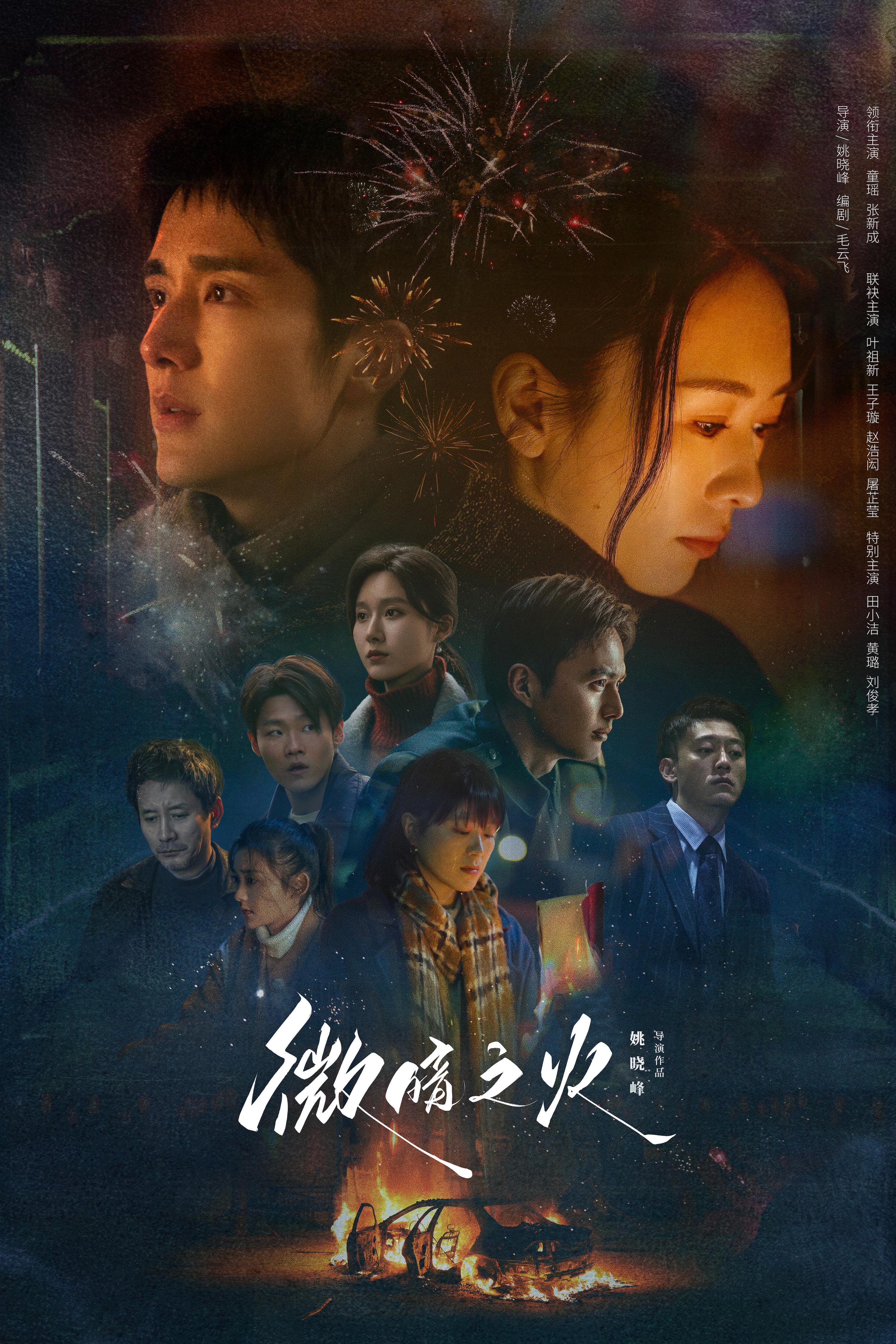
Pale Fire poster
From the beginning of the script creation, the main creators reached a consensus that the text is delicate and literary, like a novel with concise lines and many descriptive words, and the description of the emotions of the male and female protagonists is special and attractive. But it is extremely difficult to present such a unique script as a TV series. "The overall number of pages of this script is not long, but it has a lot of scenes." Zhang Shuwei recalled, "A large number of scenes are descriptions, and the narrative is based on pictures. Unlike many scripts, most of the scenes are lines, and the plot is advanced through dialogue." For example, how to present poetry? "If you let the actors recite it dryly in the play, it will be difficult to shoot poetry, and it will be difficult for the audience to believe how the poetry connects the emotions of these two people."
In addition, there are a lot of montage shots in the script, and everyone in the industry knows that montage shots are the most thankless. "For example, just one sentence: Zhou Luo ran through Qingshui Town. Just these few words, it is very difficult to shoot, how to make him run, what kind of emotions to bring out, which streets to use to complete it, how to follow the camera. This sentence may be our crew's 'battlefield' many times." Zhang Shuwei admitted.
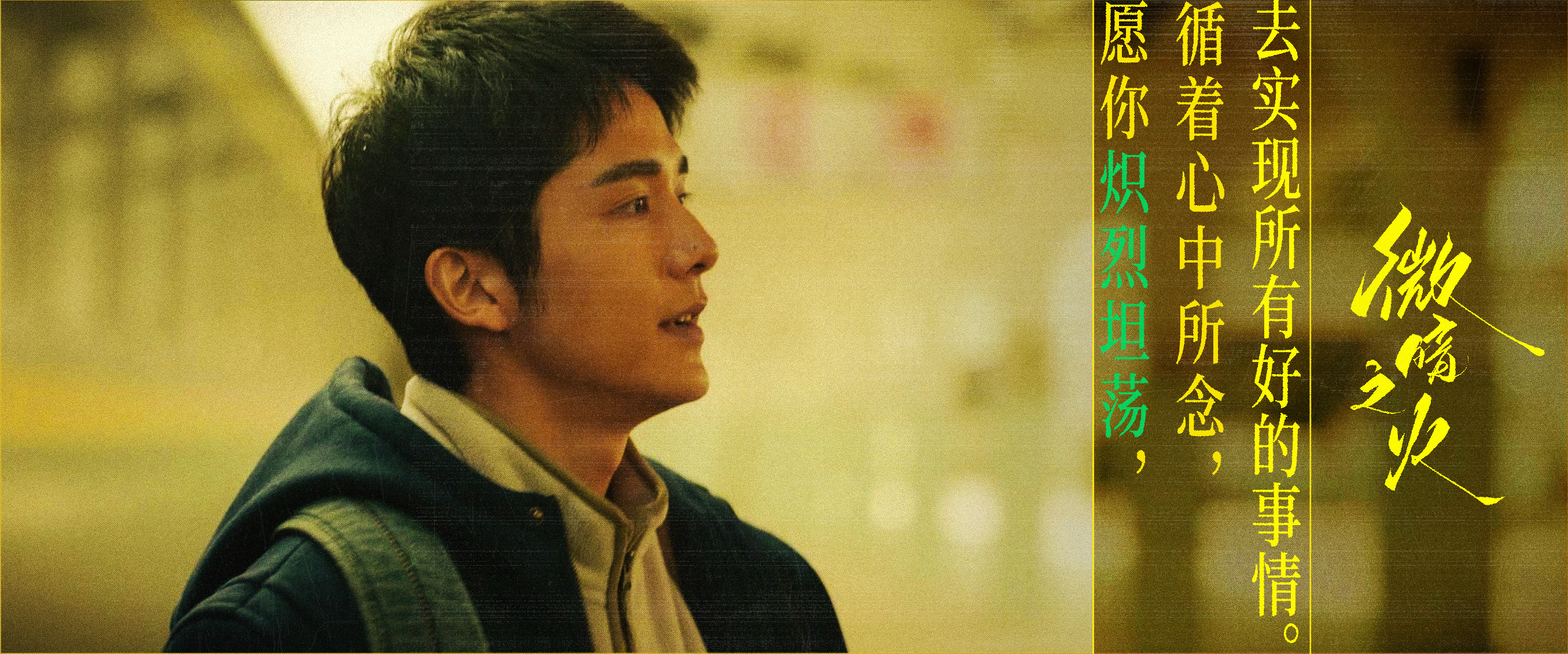
Actor Zhou Luo (played by Zhang Xincheng)
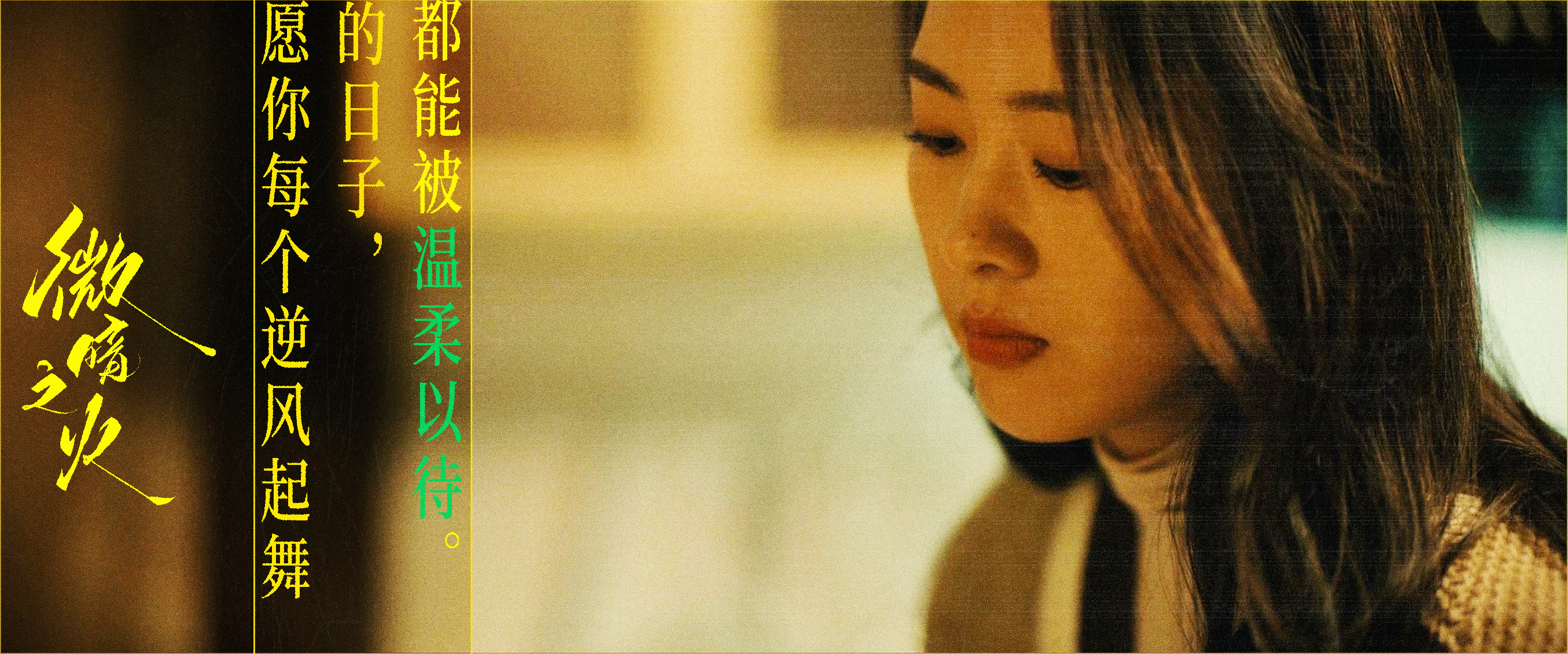
The heroine Nan Ya (played by Tong Yao)
Even more difficult is the estimation of the shooting cycle. Each project has to make a shooting cycle plan, which involves the working hours signed with all the main creators. "Normally, our shooting goal is to basically complete the daily notice. For most dramas, we can estimate the shooting time for a single scene. But when this drama just started shooting, it was difficult for the producer to have a particularly accurate estimate of the shooting time for a single scene."
Many scenes unexpectedly required a lot of shooting time. "At this location on the second floor window of the heroine Nan Ya's house, we shot many scenes of Nan Ya, such as listening to music, reading books, and making clothes. They all sound simple, but each scene took a long time to shoot because it had to be beautiful and took a long time." She gave an example: "For example, 'Nan Ya listening to music in the room', how she listens, when she listens, and in what posture, these are very delicate designs. How the director shoots, how the camera and lighting are lit, and how the actors perform, many times require countless adjustments on the spot."
Zhang Shuwei knows very well that "if this project is completed well, it will have its own style, but if it is not completed well, it will be very strange." And the producer's job is to complete this very "poetic" project down to earth.
“We all want to make a different work.”
Difficulties can only be overcome one by one.
First of all, the location. The "Qingshui Town" in the play has a very detailed setting: if you want to enter the town, you have to paddle a bamboo raft to the dock, walk through a small long street after landing, then the audio-visual store, and then continue all the way up the mountain to Nanya's home... The town also has a distinction between the "new town" and the "old town". So the structure of "Qingshui Town" needs to be very complex.
Director Yao Xiaofeng and chief producer Zhang Shuwei took the art team and the production crew to many places in China and finally chose Wuyuan. "First, the buildings in Wuyuan are three-dimensional and the mountains are staggered. The staggered feeling can create a sense of depth and three-dimensionality, which looks good visually. Secondly, its buildings with green tiles and white walls naturally have a sense of story and mystery, and the atmosphere is also suitable for this story." In addition, the patchwork of several filming locations has achieved the three-dimensionality and complexity of Qingshui Town, which meets the narrative scenes required by the unique text of "Pale Fire".
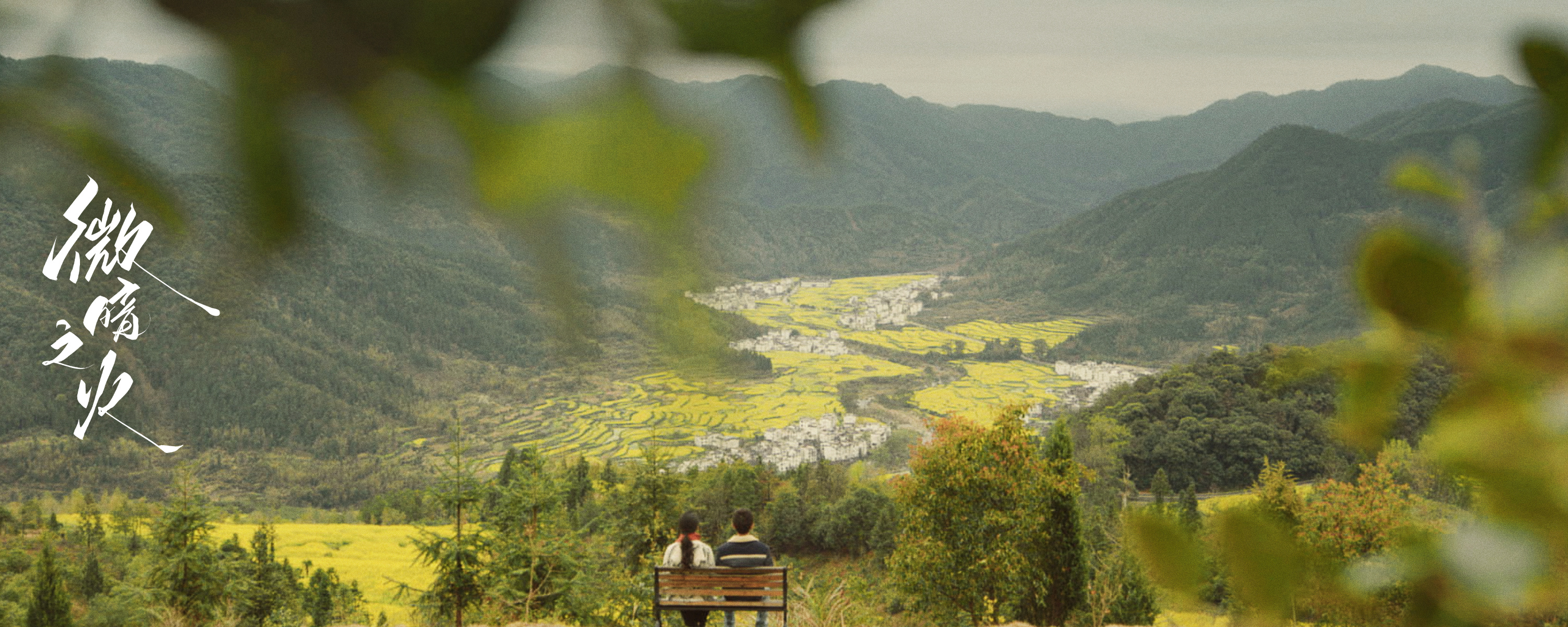
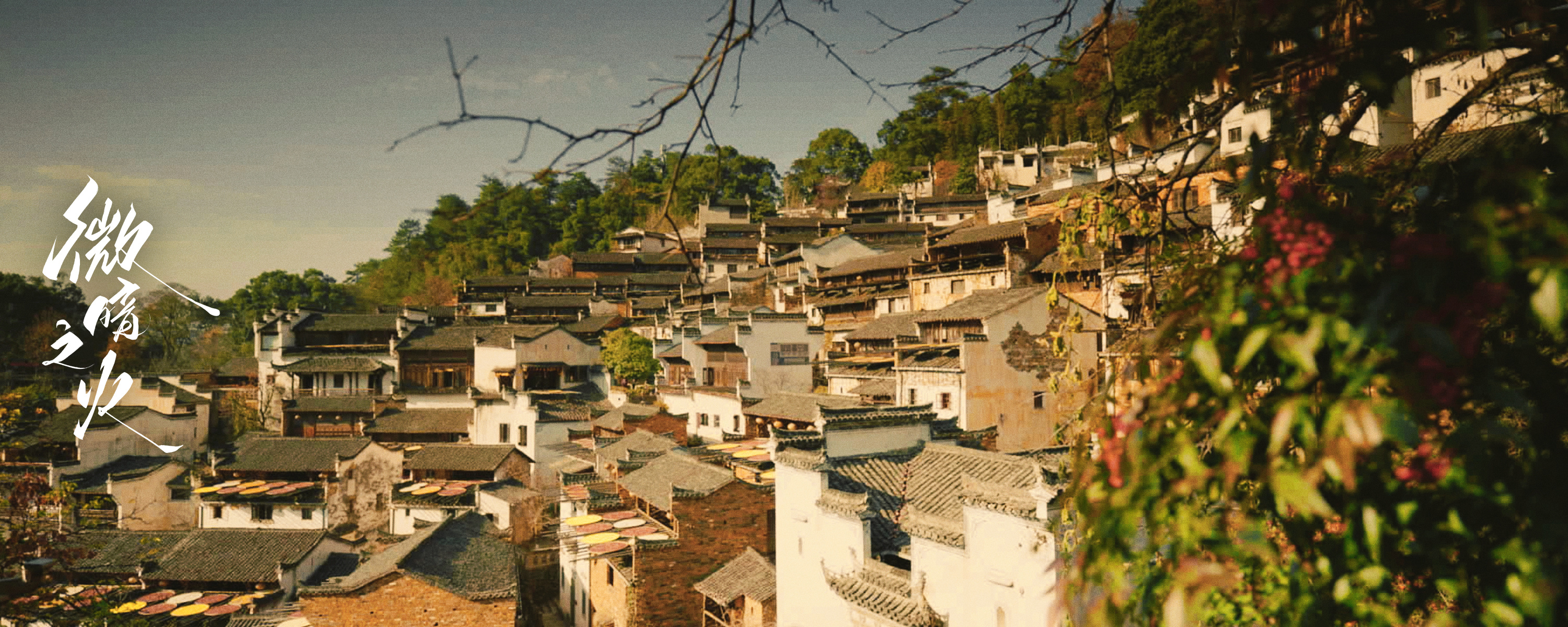
"Pale Fire" was filmed in Wuyuan
Although Zhang Shuwei is young, he has been a producer for seven years. Generally speaking, he can make a good judgment on a project at a very early stage: what is the best way to shoot it? What is the worst way to shoot it? "And the script of Pale Fire is one of those that if the pictures are not beautiful, the whole thing will fall apart, and even the presentation of the story will be affected." This situation is relatively rare in domestic dramas. "If it is a drama about family matters, whether the images are good or bad will not affect the audience's acceptance of the story. If the images are not well presented or beautiful, it will be destructive to the narrative."
Therefore, Zhang Shuwei knew that they needed a particularly good photography team. In addition, director Yao Xiaofeng also came from a photography background, so it was very important to find a photographer who matched his aesthetics and understanding of the story. "It is very difficult to do his photography. If the photography is not good, he will just do it himself." Zhang Shuwei said with a smile. Fortunately, "Pale Fire" invited Zhang Wenjie, the photography director of classic Chinese dramas such as "Awakening Age" and "The Advisors Alliance", to achieve the photography presentation in the current drama that is worth watching repeatedly.
"The styling is also included. If Nan Ya's styling is not good-looking, the character will be discounted." Zhang Shuwei also mentioned that she noticed that some viewers thought that the actress Tong Yao was not gorgeous enough. "But in fact, we didn't intend to make Nan Ya a gorgeous one from the beginning," she said. "Zhou Luo's love for Nan Ya is not based on her gorgeous appearance, but on her uniqueness. Her temperament is incompatible with the small town."
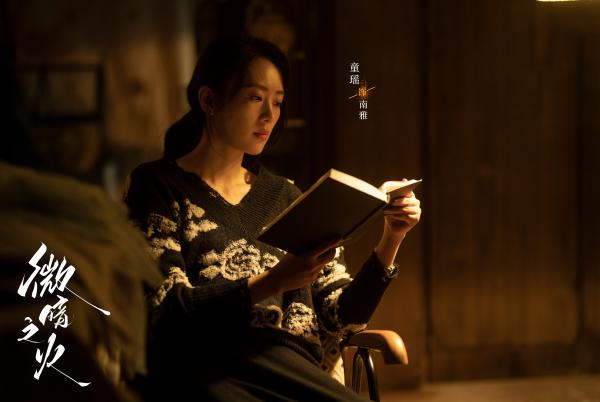
Regarding Nan Ya's styling, Zhang Shuwei believes that the styling teacher has also added a lot of points to this character. "Her styling makes you feel that her temperament is different from the people in the town, but it is not particularly sexy or eye-catching, but beautiful, tasteful and comfortable, which is a test of styling." She specifically mentioned that all the costumes of Nan Ya in the play were designed and made by Ma Defan and his styling team. The works of this senior styling director include "Zhou Yu's Train", "Yun Shui Yao", "Love under the Hawthorn Tree", etc.
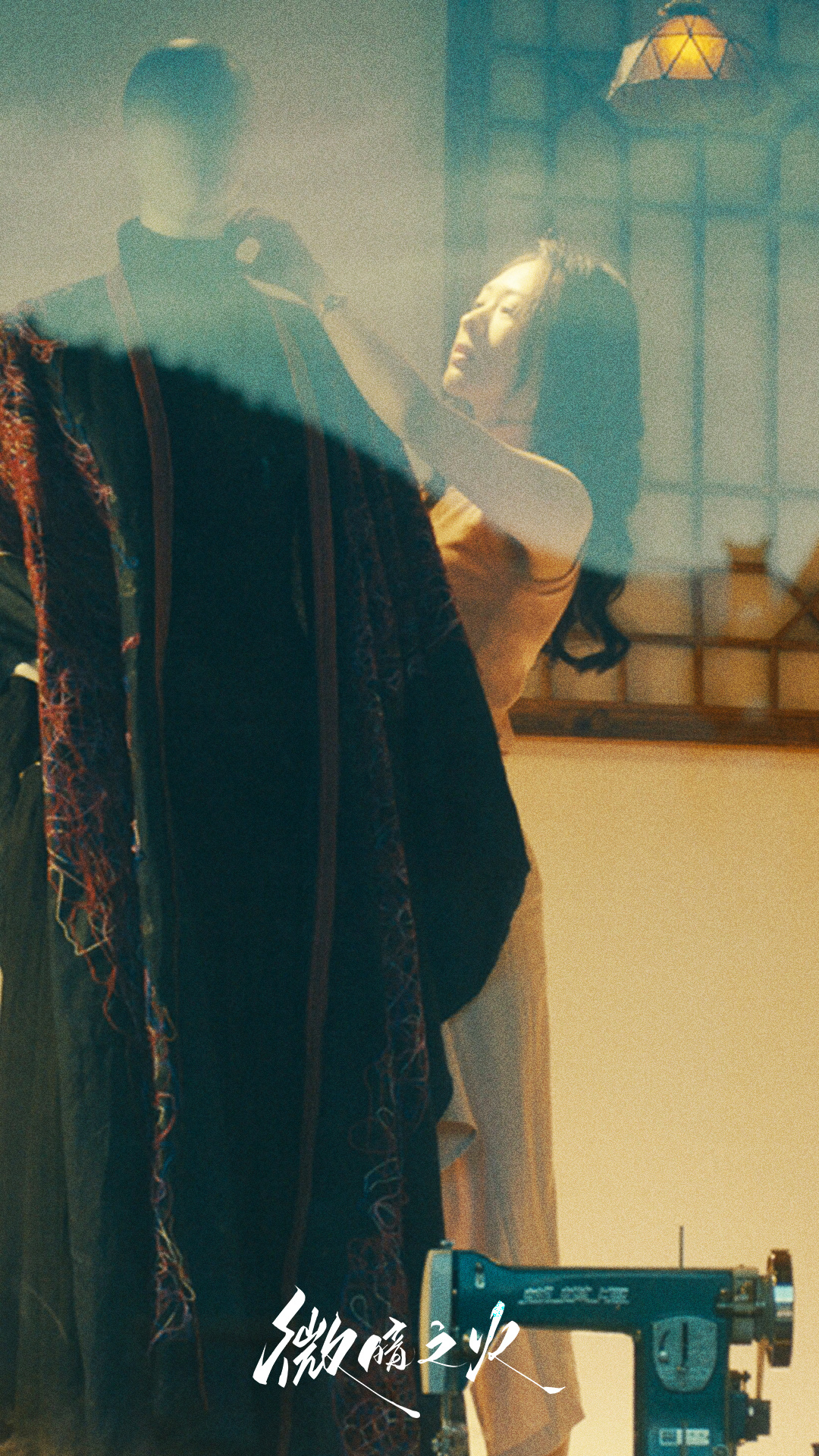
Nanya has a temperament that is incompatible with the residents of small towns
It is precisely because of the good fortune of gathering a group of excellent and dedicated creators that Pale Fire was possible. "We all want to make a different work, and there is no disagreement on this point. So the team rarely has conflicts in content creation," Zhang Shuwei said, "From the day we found the screenwriter Mao Yunfei until the completion of the project, our creators had a highly unified basic understanding and cognition of this play."
"When something happens, you have to do it"
Zhang Shuwei believes that it is very important for producers to learn empathy. "In a producer's work environment, many of the people you face are artists, directors, screenwriters, and actors. How can you empathize, cooperate, and collaborate with these more sensitive and emotional people emotionally and emotionally? This is a skill of a producer."
Recalling her time in the industry, she admitted that when she was young, she had no idea what a producer did, let alone the significance of a producer to a project. “Aren’t plays shot by directors, and scripts written by screenwriters? What does a producer do?”
It was a coincidence that she made her first film. She had almost no expectations, but she actually got Sun Honglei to star in the project "Study Abroad with Dad". "Once you have confirmed the actor, you have to find funds to match it. Once you find the funds, you have to invest in filming." Step by step, "When things come, you have to do it."
I have to be responsible for finding actors and funds, solving various emergencies during the filming process, and being responsible for every link. I put more energy and judgment on "how to finish the filming smoothly, how to coordinate the relationship between actors, directors, and creative people." The whole process is exhausting. But after the whole process is over and the project is completed, "I found out, oh, this is how to find investment, how to shoot, and how to find actors..." The panic experience began to take root in my heart and turned into experience, and my ability to judge the content is gradually accumulating.
"Honglei's agent told me at the time that after this (highly difficult) drama, it would be much easier for me to do subsequent projects." But when it came to doing new projects, I found that there would still be new challenges. "It's still very difficult. You can't say it's easier than the first drama."
With each play, Zhang Shuwei is more and more clear about what she has to do. "There are too many things that producers have to do, maybe hundreds of things to sort out, but which one is the most important? What do I have to ensure in the general direction? This is the experience you will accumulate in each play." She will also review each play, where she made mistakes, where there are problems, and how to avoid them next time. Her ability to control and judge the content is gradually improving. "But next time, there will still be new issues."

Producer Zhang Shuwei
"What's the most attractive thing about this job?" the reporter asked. "Facing new challenges," she replied.
In her opinion, the charm of the profession of producer lies in uncertainty. "Uncertainty will make you feel that you are never repeating the same thing. Every play you make is unique and different from the last one. You face different creatives and actors, and every day is a new challenge. No producer dares to say that if the last play I made was particularly good, my next play will definitely be particularly good. This is unrealistic."
"Every play encounters different problems, and when making a new play there are new problems. I think this is the hardship of the producer, but also the joy of the producer." She said with a smile, "I can't sit still, so I found a job that makes me very happy."


